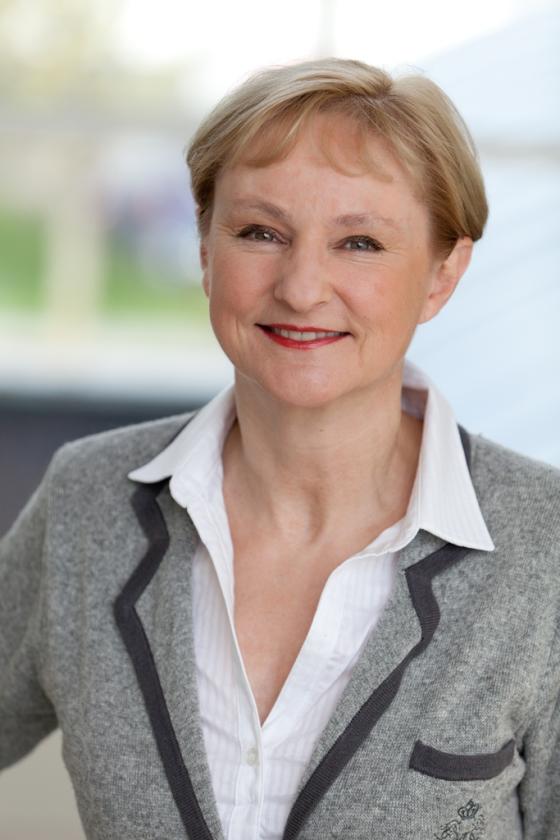"Hire women leaders!"
This is the clear challenge from Managing Director Kari Nygaard. The Norwegian Institute for Air Research has achieved good results with this approach.
The Norwegian Institute for Air Research (NILU) does not have an action plan with target figures for recruiting more women. They already have a gender balanced staff. Women are represented in almost 50 percent of the key position categories at the institute, which is comprised of a majority of physicists, mathematicians and chemists.
“We’ve grown in recent years and hired many new employees. If you look at the old guard, it’s still male dominated. The situation was different 20 years ago than it is today,” says Kari Nygaard, Managing Director of NILU.
She believes one of the most important steps she took to promote gender equality when she took over as the managing director in 2009 was to recruit more women leaders.
Daily gender equality activities
“We’ve recruited several women to the management group and now have an equal number of women and men. We’ve made a conscious effort to hire women leaders and have had many strong candidates, so it hasn’t been a problem to recruit highly qualified women. We are also working to recruit women to the board. We have owner interests in a number of companies, and we are working to achieve good gender balance in those. The experienced board members act as mentors for young candidates of both genders.”
When NILU has hired leaders, they have used moderate gender quotas, meaning that they have given priority to gender if the candidates have otherwise been equal. Today the management group consists of seven women and seven men, and the board has good gender balance as well.
“Why is it important to have more women leaders?”
“We need to think long term. I want to make sure that the management group serves as a resource team, that we incorporate gender equality into our daily activities and that it becomes a part of the culture. We don’t want it to be something that gets brought up every now and then. We want it to permeate the entire approach to our work. Women leaders know where the shoe pinches, based on their own experience, and they probably have more awareness of gender equality,” she states.
According to Nygaard, the gender distribution of the management group also sends an important signal to people who are thinking of applying to the institute.
“Role models are important. It means a lot for recruitment that potential applicants see there is gender balance all the way to the top. It means a lot for young people. This is something we need to be aware of. It’s no use having a strong gender equality policy if it’s not reflected in the management group. People look at what you do in practice.”
She also believes that good gender balance can create a better functioning group.
“Women and men bring different characteristics and experiences to the table, even though the differences might even out the more education one has and the higher up one moves in the hierarchy.”
Active recruitment
Each time NILU announces a job vacancy, they discuss whether there is a need for a larger percentage of a certain gender.
“If there is, we write in the announcement that candidates of that gender are encouraged to apply. When we are hiring, we are looking mainly for expertise. We are searching for the most talented individuals. But if we have several good applicants to choose from, we look at the gender composition of the group that the candidate is being recruited to. We practice moderate gender quotas so that gender becomes one of the selection criteria if the candidates are otherwise approximately equal. It’s part of our policy.”
“Currently, NILU’s researchers are equally divided between women and men. But the senior researchers are still dominated by men, with 65 percent men and 35 percent women. Do you have a challenge here?”
“The fact that we have an uneven distribution among the senior researchers has to do with the age profile, which will even out over time,” explains Nygaard.
”In contrast to many other institutions, NILU doesn’t have a detailed action plan with target figures for gender equality. Why don’t you have a separate action plan?”
“I believe it’s important to have a solid connection between what we say we do and what we do. We are always following up gender equality. We look for imbalances and try to correct them. This is an issue we look at from case to case. It’s the most effective way to work,” she continues.
Hiring committees are crucial
“How do you ensure that the hiring processes are neutral, so that the most talented individuals are in fact the ones who get hired?”
“We make sure that our hiring committees are diverse. There should be 50/50 of both genders. The hiring committee must always have a highly qualified expert in the relevant field and an employee representative. If you come to an interview and the committee is not gender balanced, it could send out a negative signal. We should never underestimate the influence of the grapevine. The research world is small. We have 200 employees, and news about the working environment and whether we offer good career opportunities spreads quickly.”
“We want to keep our employees”
The challenge related to gender equality in academia today is not primarily the recruitment of women, but that women end up leaving academia. NILU works in a targeted manner to keep their employees. The leaders have an important responsibility to follow up its employees and ensure that they can develop their careers at the institute, according to Nygaard. She defines a good working environment as one in which everyone can develop their strengths and talents.
“What are you doing to achieve this?”
“In the autumn we hold performance reviews, and in the spring we follow these up. This is significant for recruiting and retaining people. We make short- and long-term plans in cooperation with the employees about how they can excel in their field.”
Life-phase policy
NILU offers its employees several schemes such as flexible work hours, telecommuting and space for their children in a day care facility. According to Nygaard, flexibility is especially crucial for parents with small children.
“We work to ensure that we follow up our employees closely and offer them adaptations throughout their careers. We have a policy for the various career phases, for how to take care of employees in the different phases of their lives. This means a lot for young women and men. Men are assuming more responsibility for their small children, so making adaptations is significant for both genders.”
Nygaard believes that NILU benefits from its efforts to ensure job satisfaction and career follow-up for individuals.
“The people we recruit stay with us for a long time. There is keener competition for talented individuals, and if we have good gender balance, both genders will be more inclined to apply.”

Research institutes may have an advantage
Like many other institutes, NILU is concerned with building effective teams. Nygaard thinks there is more focus on teambuilding at the research institutes than at the universities and university colleges. This may be an advantage when it comes to working with gender equality, she believes.
“We are experiencing demanding markets in constant flux. This is why it’s important to have robust, strong, well-functioning groups where individuals can develop their strengths. We do this in order to create a well-rounded organization. Having well-functioning teams is vital for professional and personal development. The individuals are seen, and as far as possible they get the opportunity to cultivate what they’re good at. This makes talented people stay with us. A focus on the group can make it easier to feel a sense of security and belonging – for example, when employees return to work after parental leave and resume their professional activities in the group they belong to.”
She thinks this is a positive trend in the research institute sector.
“I’m seeing that more women leaders are being hired in the institute sector and that this has been a conscious effort over many years. This is an issue we discuss and are concerned with in the institute sector, and it’s crucial for ensuring recruitment to the sector.”
Translated by Connie Stultz.
